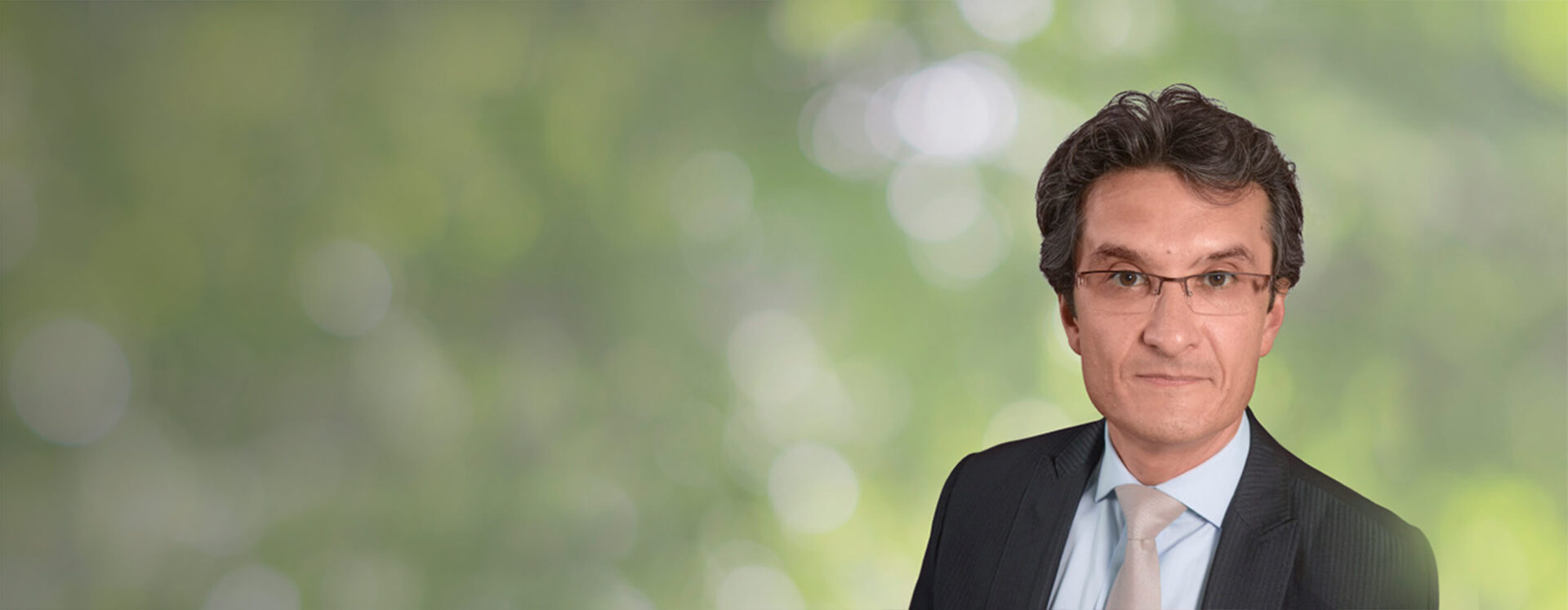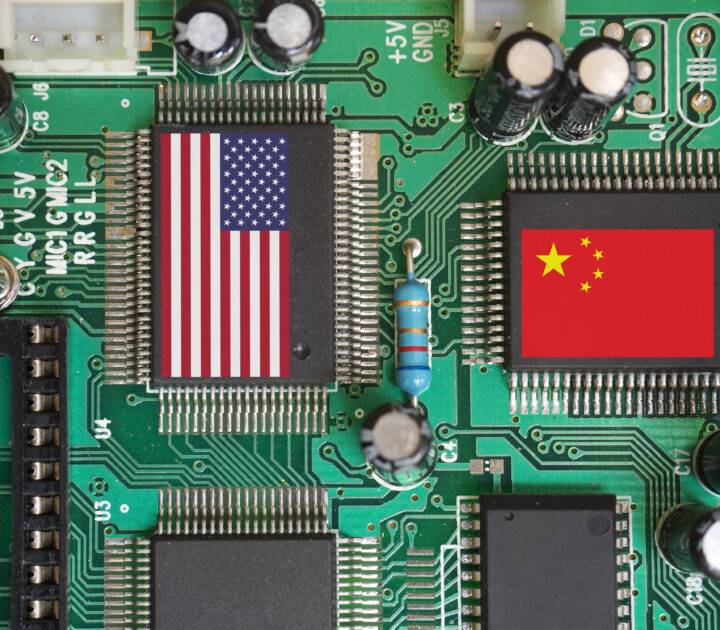I have just returned from my first-ever, one-week visit to the Democratic People’s Republic of Korea (DPRK). Having spent the last ten years in Switzerland, I have enjoyed the experience of living in a competitive, modern, innovative country with superb quality of life. During my tenure as Director of the IMD World Competitiveness Center I have also witnessed the efforts of not-so-successful countries in their drive towards progress and prosperity from Asia to the Middle East to Latin America. Finally, a third group includes the poorest countries in the world. Even in these, one sees a bright future, although it is sure to be found at the end of a very dark, long tunnel of poverty and lack of institutions. Today I can say without a doubt that I have seen the ugliest side of world competitiveness in a country with only a sliver of hope.
Today North Korea is first and foremost a failed economy. Remarkably one of the very few low-income countries which is not in Africa, it is still recovering from a famine in the 1990s following the collapse of the Soviet Union that killed approximately one million people. Touristic brochures and the press do not discuss these events. But even on my trip that was meticulously controlled by the Korea International Travel Company during which I could only see what they wanted me to see, there were glaring examples of deprivation. Agricultural laborers still use tools and systems from before the industrial revolution: no mechanization, all tasks performed by hand, lack of long-term planning and product diversification, and certainly low productivity. The DPRK has a deserted landscape with no trees and vegetation, and a primary sector which seems far from being self-sufficient. I had the opportunity to visit a cooperative farm in Chonsam-ri which operates under the same premises as the ones in Mao Zedong’s disastrous Great Leap Forward in China: the government imposes a production quota (usually of basic products such as rice and cabbage), and the cooperative farmers keep the surplus. Since the government controls both the quota as well as the price paid, the prosperity of the cooperative members is completely in the hands of the government.
Industrial equipment is obsolete: during a visit to a water bottling plant in Kangso, I could see that the machinery had been manufactured in Italy in 2002, even though the plant was inaugurated in 2012. In the Kaseong Koryo Museum I was presented with a display of ‘North Korean’ technology which included mining equipment by Caterpillar and robots with the Siemens logo. Buses and planes are Russian; cars are Chinese and Japanese, in addition to the Mercedes and Audis driven by party officials (which can be easily identified by the 02 and 216 plate numbers); trains are German, telephones are Chinese, coffee is Swiss. I visited a training center so I could experience the North Korean technological revolution, and students were working with Dell computers whose branding was carefully covered with a North Korean logo. However, all these items were ridiculously old and close to their breaking point, so one has the impression of being in a central European city in the 1950s.
We often say that competitiveness requires good infrastructure. Excluding the residential area of Pyongyang, the rest of the country is in perilous ruins. It was a nightmare to drive the 180 kilometers that separate Pyongyang from Panmunjom and the De-Militarized Zone (DMZ). This contrasted significantly with my drive from Seoul to the DMZ, 12 years ago via an impeccably smooth highway. There has been no infrastructural development in the last 20 years, ever since Soviet money stopped flowing into the country. My guide explained very proudly how the road on which we were driving on our way to Mount Myohyang had been built by students who volunteered during the ‘Arduous March’ of the 1990s. While I had reasons to believe that the students had not volunteered in the strict sense of the word, it was clear that the construction had been undertaken by amateurs who had little or no experience constructing roads.
People suffer. I was not allowed to see it, and I was never told so. However the signs of malnutrition, low quality of life as well as a lack of culture, recreation, and leisure are evident. I attended a concert by the North Korea National Orchestra and saw the magnificent National Theater. However, instruments were clearly old, un-tuned and low-quality, overshadowing the players’ skill. Supermarkets (if the dark and standardized establishments where the locals buy food can be called that) offer only the basics: rice, tomatoes, onions, potatoes, bread, tea and coffee. In the countryside, most of the houses had no electricity or running water, so I had to shower with icy water in my ‘luxurious’ hotel in Chongchun. In most of the public buildings (museums, exhibition centers, government departments), however luxurious they appeared from the outside, they proved to be decrepit when inside with no running water or heating. I endured a few power cuts during my stay, which are a daily occurrence for the people of North Korea.
Therefore, if one has to assess the level of competitiveness of the economy by analyzing people’s prosperity, value creation, effective government policy and productive primary and secondary economic sectors, the DPRK is worse than Venezuela (the worst country in the IMD World Competitiveness Rankings). But besides that, the country is certainly one of the, if not the most, grim dictatorships in the world. The population of 24 million lives under the complete control of the Worker’s Party, the centralized government and its President Kim Jong Un.
After spending time in the country, it is clear that the dictatorship’s reputation as fundamentalist, communist, kleptomaniac, nepotistic and megalomaniac is well-deserved. Private initiative does not exist and the Party dictates which school you will attend, whether you will grow up with your parents or not, where you will work and live and whether you can move from one place to another. Police are everywhere and the army can be seen performing any number of tasks outside of their usual roles including construction, street cleaning, traffic control, and farming. Prices are fixed across the country and of course there are no banks, internet, social networks, trade unions, proper political parties, or places of worship. The Juche idea (Kim Jong Il’s philosophy based on the proposition that men control and decide everything, so people are fully responsible for their destiny) directs every single policy and decision. The regime has instituted fear and irrationality, and people are forced to do the most insensible things: In anticipation of the 7th Congress of the Worker’s Party the government enforced a 70-day campaign of increased productivity and extra working hours for all North Koreans. This means that bureaucrats have to stay a few hours longer every day, that industries have to multiply output, and that people in the countryside need to show, by working for the community, commitment to their leader and the country. As a result, I saw hundreds of people lining up along the roads fixing patches, picking weeds, planting trees in the middle of nowhere or simply sweeping the road, all of these activities being undertaken with their bare hands and rudimentary tools.
After three generations of iron-fisted control, North Korean people have grown massively ignorant and indoctrinated. Kim Il Sung (the “Great Leader”) is adored as a god; his son and successor Kim Jong Il (the “General”) is considered a visionary and a genius. The examples of irrational devotion to their leaders were sometimes so absurd that they made me crack up with laughter: during my visit to the Songnam Caverns the guide started by saying that her explanations should be listened to very attentively because the General said so during his visit 30 years earlier. Pictures and statues of both the Leader and the General are everywhere, always smiling— however they are the only ones who smile in the DPRK.
There is not a large display of Kim Jong Un’s ‘visionary’ ideas yet, but of course he has been in power for a short time and there is still plenty of time for him to become a ‘legendary’ figure. So far his appearances on local TV are usually associated to the country’s nuclear weapons arsenal and his ability to ‘wipe out’ both the Blue House (South Korea’s government headquarters) and the White House. He is referred to as ‘the Marshall,’ due to his ‘Songun’ policy which prioritizes the military over anything else.
It has been frustrating to see that North Koreans know much less about North Korea than we as outsiders know. Neither my guide nor any of the locals I talked to knew that Kim Jong Un had attended a Swiss boarding school, that his father was born in the Soviet Union (interestingly, one of the touristic attractions in the northern part of the country is Kim Jong Il’s mythical birthplace…), or that he has a five-year-old son. It goes without saying that they also had no idea what either Google or a ‘selfie’ are. North Koreans think that the DPRK won the Korean War in 1953 (they call it the ‘Fatherland Liberation’ War). They have evolved believing that the regime is the result of Kim Il Sung’s divine intervention and not affiliated in any way with the USSR, which is not mentioned in any history books. The United States is their eternal imperialistic enemy. North Koreans pride themselves on inflicting violence, suffering and humiliation on Americans, which was on display in the Fatherland Liberation War Museum with 20 depictions of dead American soldiers. North Koreans ignore the mysterious circumstances surrounding the deaths of Kim Jong Un’s uncle Jang Song-Thaek and Kim Jong Il’s first mistress Song Hye-rim. The willingness of the Party to rewrite history explains why the country is airtight to foreigners, and why we are seen as a dangerous threat to the country’s cult-like mindset. My movement was strictly limited. I had a guide everywhere I went including during my jogging sessions in Pyongyang when my annoyed escort was doing his best to keep up in his official uniform. I think that only with the distance of time will I be able to make sense of the irrational fear, the nonsense, the lack of freedom that I experienced (although at a level that probably pales in comparison to what North Koreans go through) and the locals’ blind belief that their country is paradise.
I suppose there is no use in complaining about the country if I cannot propose a solution, or at least my perception of what the future will bring. The first issue to assess is whether or not the DPRK is sustainable in its current form. I am afraid that the answer is yes. The North Korean population is not only prepared to go to war now, but they are also willing and prepared to suffer continued hardship and starvation. As my guide said: “we are not afraid of war; if provoked, we will go to war”. The consequences of the famine in the 90s has been corruption and a certain tolerance towards black markets by authorities, but indeed the lesson that North Koreans have learned is that they (at least most of them) can survive if the situation were to repeat itself. Besides, they are absolutely behind their political leaders whose propaganda is extremely effective. Changing the mindset of the population won’t happen from one day to the next, especially using outside force.
Therefore, the current embargo is insufficient and economic sanctions will only make people suffer while not weakening the political system. Perhaps closing the borders to stop foreign products and equipment, especially oil, from entering would make the average North Korean more inclined to revolt against their leaders, but that would be impossible, not to mention cruel and inhumane.
However bleak North Korea’s future looks, one thing that’s for sure is that China will play a key role in determining it. If, and only if, China decides that DPRK is not sustainable, it will not be. Reform, domestically-driven change, or a social revolution all currently seem unthinkable. Europe’s experience with West and East Germany, and the dissolution of the USSR are not applicable to the two Koreas. The two countries have evolved too far apart, and their political systems are incompatible. North Koreans live like South Koreans did fifty years ago while South Korea has become one of the world’s most developed nations. North Korea has stagnated into nothingness.
Consequently, only through a gradual, slow and cautions re-establishment of the relationships between the two Koreas will we see an improvement in the quality of life of North Koreans. A glimmer of hope has been sparked by the two sides’ expressed wishes to form a type of confederation. In the foreseeable future we could see the border between the two countries being re-opened for people and goods. And the dream in two or three generations is that, as China Mainland and Hong Kong did, we end up with ‘one country, two systems’.
After visiting the International Friendship Exhibition in Mount Myohyang (which displays the gifts received by the Kims from world political and business leaders), the local manager asked me to write a few words in their guestbook when she learned that I am a ‘Professor’.
This is what I wrote: “I hope we can return one day with a gift for the people of North Korea”.
Arturo Bris is Professor of Finance at IMD and directs the IMD World Competitiveness Center. He will be giving a keynote speech at IMD’s Orchestrating Winning Performance which takes place from June 27 to July 1 2016.



